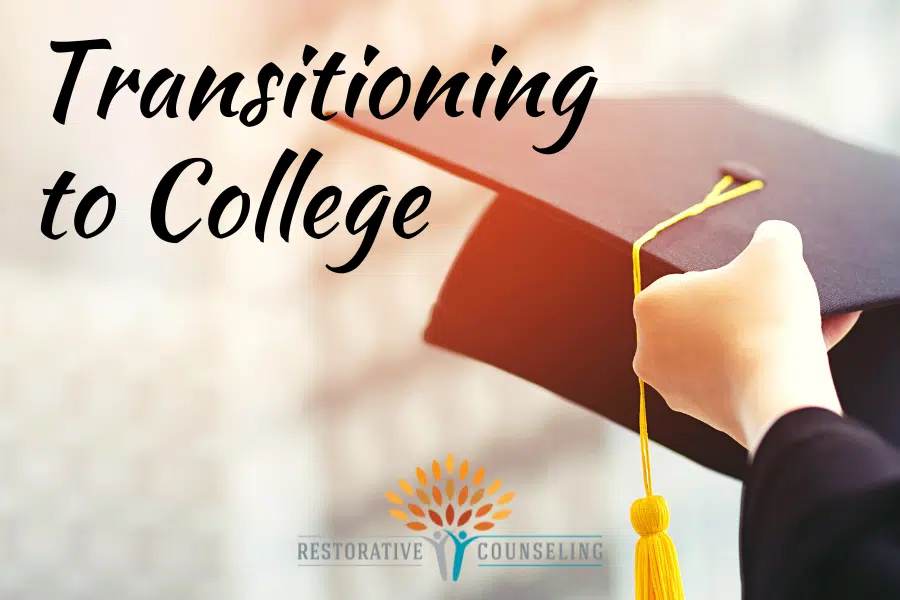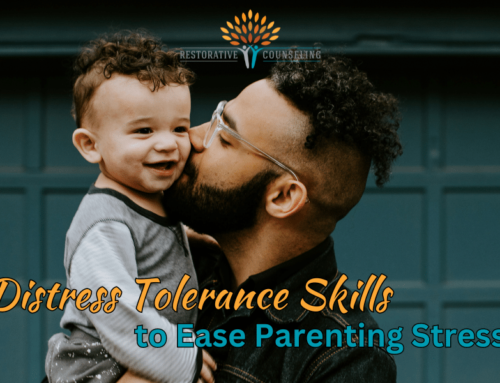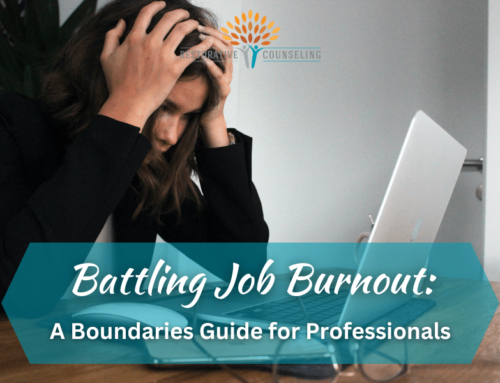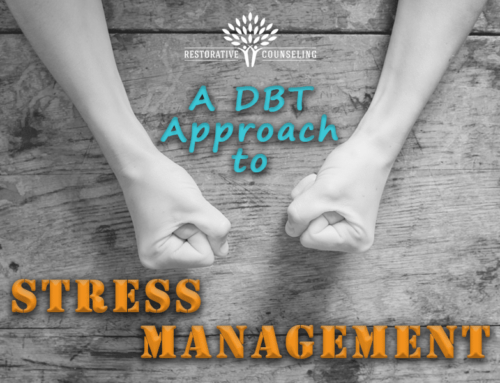Written by The Restorative Counseling Team
Emily has spent her summer break working at her hometown’s local swimming pool, catching up with family and friends from high school, and she even took a few trips in the past couple of months. Emily felt all summer that she had so much time before returning to college for the upcoming school year, when she suddenly realized she only has one week left!
Understanding Emotions Related to a New Semester
Despite being excited, Emily also experienced anxiety and dread as she thought about everything she needed to do in the next week. She wondered how she would prepare herself for moving into a new place this school year, being back to days filled with classes and extracurricular or social activities, and long nights of studying and writing papers. She didn’t know where to start, and questions raced through her head: What do I still need to pack? I put off seeing some friends this summer, do I still have time? What books do I need to buy? Is this teacher going to be as tough as everyone says? Will I be able to handle this course schedule? What will I do if I begin to feel homesick again?
In 2016, 50% of college students reported feeling overwhelmingly anxious*
The pressure to be high achieving and perfect in colleges is common, and it can contribute to feelings of anxiety and depression upon returning to college life after summer break. Additionally, the financial burden that is placed on students and families can feel completely overwhelming at times. While there are academic pressures that come with returning to campus, there are also social pressures that can cultivate loneliness, fears of disappointment or rejection, relationship changes, and comparison to others.
What are some constructive ways to handle college stress?
Here are a few tips for mentally preparing to return to college, and a few for once you are there:
- Break down what you need to get done into smaller steps. Ask yourself what things need to be done right away and try to prioritize them. Some people find it helpful to make a list of things that need to get done and feel a sense of accomplishment as they are able to cross things off as they go. Another approach may be to identify 1-3 tasks that can be completed each day, rather than becoming overwhelmed by the sense that you must complete all tasks in one day. Is there anything on your to-do list that someone can help you with? For example, having a packing buddy can make packing much easier (and more fun!).
- Review your course schedule. Professors typically send out their syllabus in advance. If this is the case, check to see if there is anything you need to know or books you need to buy before the first day of class. Reach out to classmates or friends that may have taken the course or worked with the professor in the past to learn more about what to expect. If you are worried about finances, check if a friend would allow you to re-use their book if they previously purchased it, or check out some discount booksellers such as CampusBooks.com or Chegg.com.
- Identify a campus support system. Many school campuses offer short-term counseling and crisis services and explain a bit about how they support students on their webpage. Some schools may also offer support groups where you can connect with other students struggling with similar issues. Doing a little bit of research ahead of time about supportive services on your campus, including a counselor you can see long term, can ease worries about not knowing where you could go if you were to need help. Remind yourself that these systems are in place to support you, and don’t be afraid to ask for help when you need it. Our culture as a whole, and school environments specifically, can make people feel as though they must know how to handle everything perfectly on their own. This way of thinking can actually make anxiety and depression worse. Additionally, reaching out to friends that you can rely on that first week of school can help alleviate feelings of isolation or loneliness. Even if they’re friends from home, that supportive voice does a lot to help make you more comfortable on campus. That said, if you feel that making new connections is an issue you struggle with while on campus, the first week of school typically has events to help you connect with people that have similar interests as you.
- Practice self-care. Obvious, right? However, we often forget what self-care really means. Self-care can be as simple as beginning to wake up and go to sleep at a regular time to help your mind and body adapt to being back on a regular schedule. With long hours of school work, we can even sometimes forget to nourish ourselves. Making time to eat regularly is one of the most important factors that will allow you to have adequate energy throughout your day. Taking moments of your day to get in some physical activity and to do activities you like just for the joy or fun of it can also be great ways to care for yourself during times of high stress.
Getting Ready for Your First Day
Emily prioritized her to-do list and eventually it was move-in day. As she began to unpack, she still felt this sense of dread that she would need to begin classes in a few days. She continued to put so much pressure on herself to be perfect this year, both academically and socially. But Emily took a step back and decided that this was not the way she wanted to live out the rest of her college experience.
She was cognizant of the support networks on campus and made the choice that it was time to talk with someone about how she was worried about her time on campus and the constant pressure to be perfect and high-achieving. Though she had some fears about not knowing what to expect or what this would mean for her, she called a counselor.
Emily found that working with a counselor finally allowed her a space where her worries were listened to, and she was able to learn new ways of coping with academic, financial, and social pressures. Most importantly, she began to feel more confident in her abilities, less isolated in her struggle, and more optimistic about her future.
It’s okay to not be okay
College life comes with many mental health challenges as you try to navigate so many new challenges and opportunities. While, in our example, Emily took steps to address these challenges early on, we understand that new experiences can leave you feeling alone, incapable, or overwhelmed at any point in the semester. If you are a student struggling with the pressures of college life, contact us now to schedule an appointment with Restorative Counseling. We strive to give you a space to feel supported and to learn new ways to manage the many expectations and pressures you are facing.
*College students and depression (2016.) Retrieved from https://mayoclinichealthsystem.org/hometown-health/speaking-of-health/college-students-and-depression.






